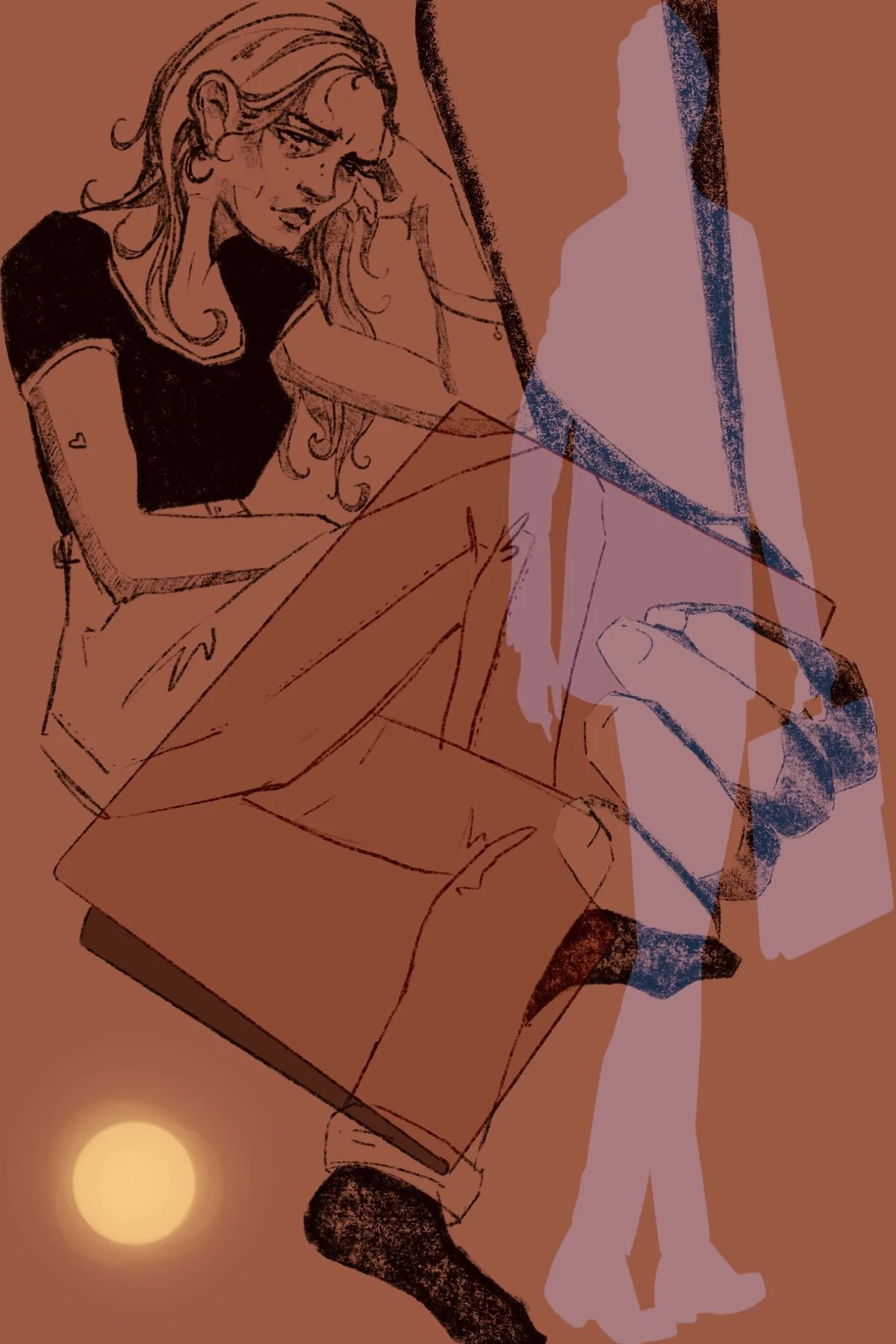Fighting Against Capitalism, One Page at a Time
Illustration: Amelia Tran
I can count the number of things I truly own on one hand. I rent my house. I subscribe to listen to music, watch TV, and do the daily crossword. If I missed a payment, I would no longer be a student. I am plagued by a lack of ownership, and I’m not the only one. Rentier capitalism describes the contemporary socioeconomic condition in which individuals are either a renter or a rentier — a modern version of the proletariat and the bourgeoisie. Rentiers are people like landlords and streaming service CEOs who own the platforms on which we consume practically everything.
When I actually do make a purchase that is entirely my own, I feel an overwhelming sense of anxiety and guilt for contributing to issues like rampant consumerism and climate change. It’s a lose-lose situation. When I don’t own things, I feel anxious that I’ll never be able to afford a home. When I do own things, I feel like another cog in the machine that has been influenced to buy trendy things that will surely end up in a landfill within the year. When I feel this way, I turn to my comfort hobby: reading.
Not only does reading calm my nerves, but the way in which I consume books allows me to feel a semblance of control. As a big fan of my local library, I often borrow audiobooks, ebooks, and physical books alike. I know that the book in my hands (or headphones) has been read by someone before me and will be read by someone after me. It’s not as if borrowing one book is going to lower the Earth’s temperature. Even more so, the onus should be more so on corporations that have the resources to really fix climate change, rather than individuals. Regardless, my local library reminds me that there are people who actively care about their place in the world and want to leave it better than they found it. Since I cannot change the minds of politicians or convince billionaires to give their money away, this fact is enough.
Anyone who knows me knows that my favorite local library is the one within my own bedroom. Books line my shelves and spill out into piles on my floor. Any viable surface in my room becomes a home for a book. What differentiates these books from the other stack of library books is simple: when I do buy a book, I really own it. I write in them, I underline my favourite quotes, I add sticky notes, I emboss the title page, I lend them to friends. Buying a book is not a passive act to me. It requires me to consciously think about whether it is a story I just want to read— in which I take a trip to the library — or if it is one that I want to actively engage with and make my own. In this small way, I feel a renewed sense of ownership in an otherwise unownable world. I can reconcile my consumption of books with the fact that I truly love the ones that I own. Whether I own my future house or rent it, it will be filled with books. Not just any books, but books I have reread and filled the margins of.

